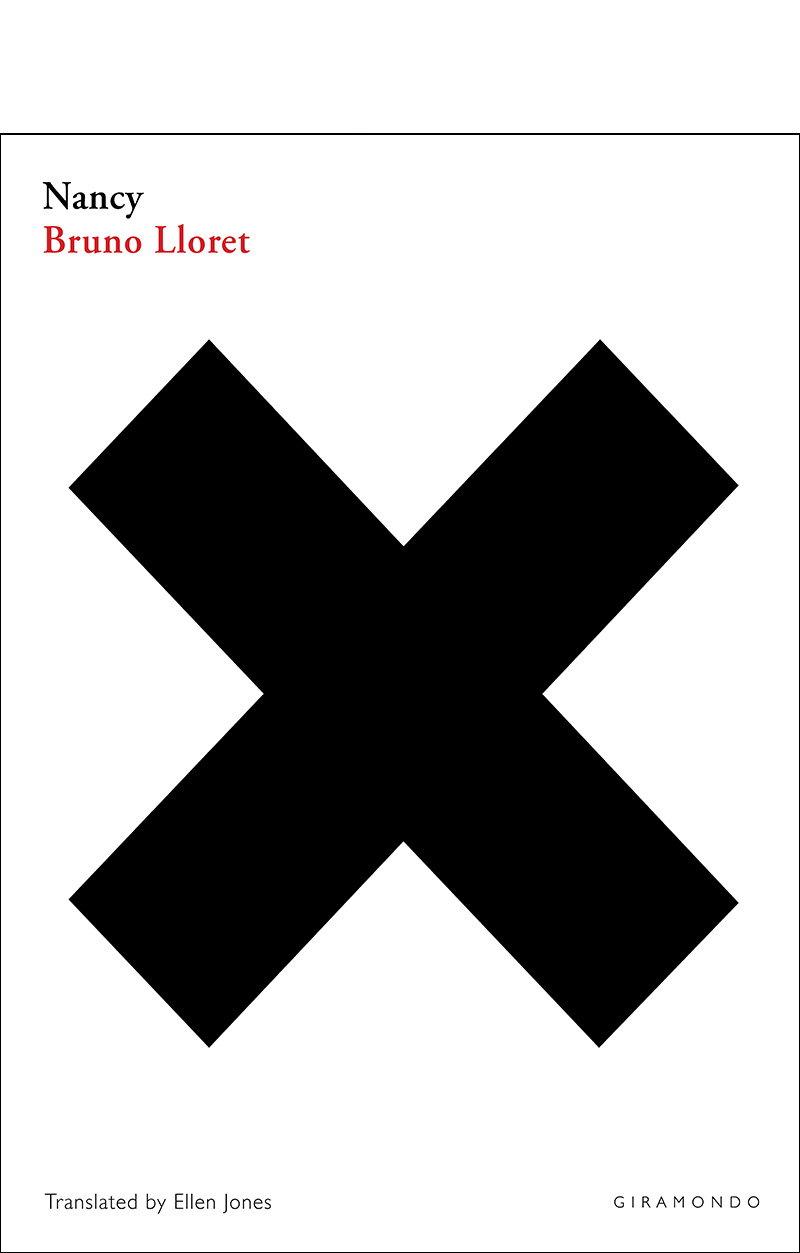
Bruno Lloret, Nancy, Trans. by Ellen Jones, Giramondo, 2020.
excerpt
'One of the most original books of the year' - Natalia Barbelagua,
Revista Intemperie
In a small city
perched between the Pacific
Ocean and the Atacama Desert in northern Chile, a dying
woman relives her
childhood and adolescence in vivid detail. In the trance of her sickness, she
recalls her reactions to the breakup of her family, the disappearance of her brother, the
defection of her mother, her father's conversion to Mormonism -
snapshots in which sex, violence, poverty and environmental degradation
intersect against the oppressive and ecstatic backdrop of religious
belief.
'This world is a desert of crosses,'
she remembers her father telling her - and in the visually striking
layout of Nancy,
crosses in bold make up the very fabric
and rhythm of the book. The text is full of Xs, which can be read in many ways:
as multiplication symbols, scars, marks on a treasure map - or
as signs of erasure,
the striking out of reality, the approach of death, like the cancer that
threatens Nancy's life and memories.
'A novel that flows naturally and
can be read quickly, which is not to say that it's simple - quite the opposite.
It toys with existential questions about what it means to be human' - Juvenal
Romero Perez, Revista Lecturas
'[Nancy] uncovers the painful wounds
inflicted by belief and by poverty, when life has become a
wilderness, a
minefield, an act of survival, in which even love and desire are reduced to nothing,
witnesses to a happiness as improbable as it is precarious.' -
Leonardo Sanhueza
Bruno Lloret was born in Santiago, Chile, in 1990. Nancy (2015), his
debut novel, was highly commended in the Roberto Bolaño Prize. In
2018, he published his second novel, Leña.

No comments:
Post a Comment
Note: Only a member of this blog may post a comment.